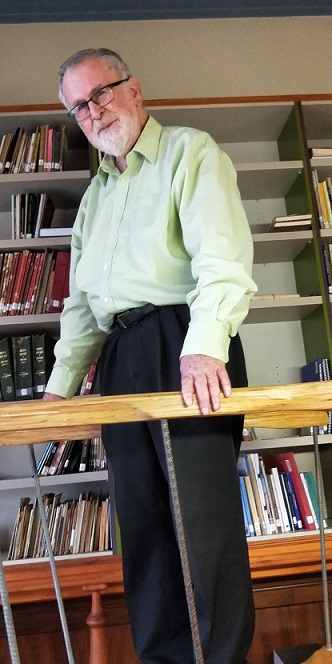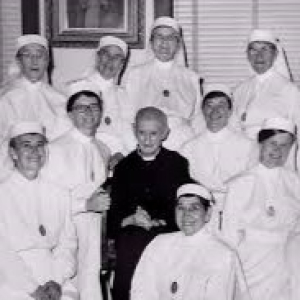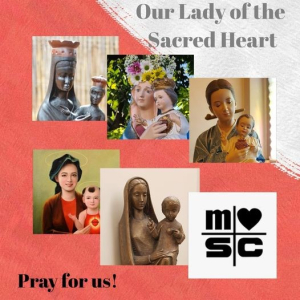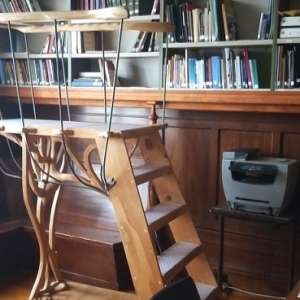Peter MALONE
Bump Along the Way, A
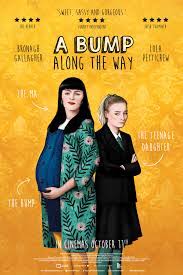
A BUMP ALONG THE WAY
UK, 2019, 95 minutes, Colour.
Bronagh Gallagher, Lola Petticrew, Mary Moulds, Dan Gordon, Andy Doherty.
Directed by Shelley Love.
A cheerful film from Northern Ireland.
This is a story of Pamela, played exuberantly by Bronagh Gallagher, aged 44, a broken marriage, living with her daughter, Allegra, working at a bakery. After some drinking, she has a passionate evening with a younger man in the back of a car. She is not worried about unprotected sex because it been told after the birth of Allegra that she cannot have any more children.
But, she could, and does, conceive.
A blend of comedy and seriousness in her facing the reality of motherhood in her 40s, a reliance on her close friend, confidante, but also problems with her daughter, midteens, critical of her mother at times, initially upset about the pregnancy, especially as news gets around the school, but eventually coming to terms, and eager for the baby.
There is a scene with the ex-husband, unsympathetic. There is a confrontation with the father and his hostile attitude.
In the Allegra part of the story, there is school, classes, her being bullied, a sympathetic teacher, her infatuation with a boy, neglecting a close friend, some drinking, sickness, and great embarrassment.
However, this is a happy film, some reconciliation is, the baby, and reconciliations all round.
- The title, tone, pregnancy, comic, serious?
- The Northern Ireland setting, characters, accents? The town, homes, school,, hospital, surgeries? Musical score?
- Pamela’s story, aged 44, the initial encounter with Barry, her drinking, sex, unprotected, not fearing pregnancy, broken marriage, relationship with the ex-husband and his visits, Allegra as her daughter, age, managing by herself, in the shop, the customers, Richard with Michael and his support? At home, tensions with Allegra? Health, discovery she was pregnant, reaction, her reliance on Sinead as her friend and confidante? The doctor, the pregnancy, previous advice? Attitude, keeping the baby, others suggesting abortion, a mother at 44?
- Her going to see Barry, his negative reaction, his mother, ousting her? Her later decision to return and confront him?
- Allegra, her name, her friends, bullied at school, the class and her response to the teacher, his concern? Her friend, their being together, her infatuation with the boy, his ignoring her, then his talking to her, collecting her friend, the separation? Her mixing with the other girls? Her birthday, our with boys and friends, the drinking, infatuation, the boy’s girlfriend and her reaction? Her lying to another? The story about her mother’s pregnancy and her reaction? At home, hostile?
- Allegra and her gradual mellowing, love for her mother, concerned about the baby?
- Pamela going to the scan, the decision to know, about the name of the boy? The photos of the scan – and her having Allegra’s?
- The visit her ex-husband, the tension, clash?
- The birth, the joy?
- The happy reconciliation, friendships, happy ending?
Reflection/ Ukraine

REFLECTION
Ukraine, 2021, 127 minutes, Colour.
Directed by Valentyn Vasyanovych
This is a very serious and sombre film from Ukraine. It presupposes audience knowledge of Ukraine, the tense relationship with Russia in the past, famines, part of the Soviet Union, freedom, and the clash in 2014 and Russia’s appropriation of the Crimea. This episode is the context for this film.
However, with Russia’s invasion of Ukraine in 2022 and the continued war, it has even more relevance and poignancy.
This is an episodic film with a distinctive style of camera work. Most of the sequences are long, filling the frame, the action within the frame, the camera generally not moving except from distance to foreground. In between there are a few action sequences like going from the torture room down to the basement and the hurried moving down the steps.
The scene is set with two men talking about their work as doctors, one at the headquarters, the other coming from the front, and some personal touches of relationships, along with a demonstration of firing bullets and avoiding them. The film then moves to a scene of surgery at some length, especially with the bloodied bodies. A transition then to a drive in the rain, and a young woman asking her boyfriend about patriotism and why he hadn’t enlisted.
A scene at home, looking at an LP, noise from the player, the transition to a further drive, the rain, an action sequence, and the capture of the doctor.
There are some gruelling sequences following, interrogations, some graphic moments of torture, the intensity of the interrogator, the soldiers watching, the effect on the doctor, his being hurried down the steps to the basement, stripping him, vigorous hosing him. She is one interrogation, and his being placed in the cold cell.
There is a sequence of a huge vehicle, allegedly for humanitarian aid but, with its assistants, inside a machine for the disposal of bodies. Further torture, further disposal of the bodies and the offhand conversation between the two men.
There follows a quieter interrogation and the doctor confessing to being a spy. There is an emotional sequence of a long drive along a long dark road leading to an exchange of prisoners.
Then a transition to a conversation with a high-rise buildings background, some more intimate sequences, the man on a couch, a woman doing exercise, bins of LPs.
The final part of the film seems to be a medley of sequences, a meal, branches, book, a running track and dogs, dressage, the rain, city lights, a rider rescuing dogs.
The title of the film is Reflection and, with its range of images, the war background, humanity and inhumanity, and poetic images and symbols, there is much to reflect on.
Kingdom of the Planet of the Apes
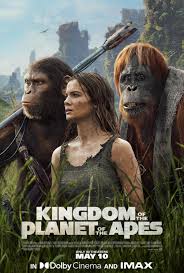
KINGDOM OF THE PLANET OF THE APES
US, 2024, 145 minutes, Colour.
Owen Teague, Travis Jeffrey, Freya Allen, Kevin Durand, Peter Macon, William H.Macy.
Directed by Wes Ball.
After a very successful trilogy during the 2010s, here is the beginning of a new trilogy. And, 21st-century audiences seem to have taken very favourably to Planet of the Apes films. This is the 10th.
However, for those of us who were watching films in 1968, the impact of the original Planet of the Apes was unexpectedly powerful. We went on a journey into strange world of intelligent apes with Charlton Heston, and, with him, to be rather overwhelmed by the final discovery of where the planet actually was. Then there were five perhaps rather ordinary sequels, with titles like Conquest, Battle, Escape… And Tim Burton ventured on a remake with the original title in 2001, not so well received. But, the trilogy of the 2010s, Rise, Dawn, War… with its focus on the commanding ape leader, Caesar, performed by Andy Serkis, reinvigorated interest.
This film is very long. Some have complained that there is not enough action, too much serious reflection! On the other hand, most have been impressed with the re-creation of this ape world, opening in a small village rather than in the kingdom, information given that humans have created a virus long since which has affected the apes and enhanced their intelligence and had an overpoweringly harmful effect on the humans. These apes are great climbers, protectors of eagles and cherishing eggs from their nests. (And the climbing will have great significance in the final action.)
And, director, Wes Ball, says he was influenced by Mel Gibson’s Apocalypto, the impact of the conquistadors on the local Mexicans. So, this is a story of the abduction of the villagers after an attack by giant marauding apes to become part of a huge kingdom by the sea, establishing life in the village, a sympathetic view, and the rise of a lone hero, Noa (Owen Teague), who witnesses the defeat and capture, but then goes on a quest, accompanied by an intelligent human, Mae (Freya Allen) who is something of a mystery to the apes but has strong motivations of her own. Noa is taught wisdom by benign giant ape Raka (Peter Macon) and, at first trusted by Proximus (Kevin Durand), the leader of the dominating apes, collaborate with Mae, discover the remnants, still active, of giant military installations..
Yes, there will be a revolution combining the apes’ intelligence, lost human technological powers, an interesting view appearance from William H Macy as a retired intellectual, and then the uprising, the combat, the ingenuity, and a wonderful range of special effects.
For most audiences, enjoyable, interesting, and quite a deal to reflect on.
- The 10th film? 56 years after the original? The initial impact, the creativity of the world of the apes, the place of the humans, and the discovery of where the planet actually was?
- The franchise in the 21st-century, the trilogy with Caesar? This beginning of a new trilogy?
- The opening explanations, the virus and its spread, the effect on the apes and their intelligence, the decline of the humans? The different cultures of the apes? Caesar and his leadership, law, heritage? Small villages? Proxima’s and his attempt at a kingdom?
- The opening, the three apes, the Eagles, the quest for the eggs, the care for the Eagles? Noah and his climbing abilities? His relationship with the other two? The return down, Noah and his parents? Respect for the law? The lifestyle? The glimpse of the human and the impact?
- The invasion, the cruelty, deaths, the breaking of the eggs? Noah, his parents? And the abduction of the villagers? His being left behind, his decision to search for them? The encounter with the human, tentative, suspicions, communication, the mystery about the woman, the revelation of her name, Mae?
- The range of scenery throughout the film, the mountains and trees of the village, the open plains, desert, the coast?
- The encounter with Raka, size, benign, age and wisdom, the Heritage of Caesar? Instructing Noah? The response to Mae? The travels together, a genial journey? The attack, the death of A rocker?
- Proxima’s, large, crown, the henge apes, the brutality? The capture?
- The ambitions for the kingdom by the sea, the range of captured tribes, imprisoned, the atmosphere of the sea and its turbulence, the wall breaking the flood, the remnants of human technology? Telescope and Noah’s fascination? Proxima’s and his using Noah? The technology to break down the rampart of the installation?
- Macy, the human presence, his room, the books, his acceptance of the situation, his advice to Noah and to Mae?
- May, revealing more of her background, enlisting Noah to help, the infiltration into the installation, its vastness, her turning on the power, Macy and his warnings against an uprising?
- The revolution, the oppression, Mae and her success with the installation, the contact with the humans, the fact that there could be a revival of human intelligence?
- The final battle sequence, Noah and the confrontation was Proxima’s? May and her interventions? The dilemma is, the destruction of the sea wall, the flooding, the apes and their abilities to climb, the final steep climb to safety?
- The destruction of the kingdom? At the opening to what would happen to the villages and their escape, the return home…?
Housekeeping for Beginners/ Domakinstvo za Pocetnici

HOUSEKEEPING FOR BEGINNERS/ Domakinstvo za Pocetnici
North Macedonia/Australia, 2024, 107 minutes, Colour.
Samson Selim, Anamaria Marinca, Dzada Selim, Mia Mustafi, Alina Serban.
Directed by Goran Stolevski.
Here is a drama which invites its audiences to become more and more involved – despite a rather raucous beginning which some might find a bit offputting. After all, this is a film set in North Macedonia, one of the now many countries in the area which used to be called Yugoslavia, an area which is noted for zest of life despite the many conflicts. And, we can note that the writer director, Goran Stolevski, was born in this country but migrated to Australia in his teenage years, all his film education in Australia. And, this is his third film in two years, You Are Not Alone, setting North Macedonia and Of an Age (winner of several Australian film awards) set in Melbourne.
The title gives some indication that this will be a domestic story – but also an indication that all will not be smooth sailing. What the film does is to initially introduce us to a range of characters who live in this one household, mainly women, one man and a newcomer young man, also a teenager and her half sister, aged five or six. After we identify the characters, some at the centre, some at the edge, become aware of their interactions, especially during a rowdy meal. But, then some of the characters come into sharper focus, the complexities, one with a terminal illness, her two daughters, quite a number of tensions. Gradually we become much more involved with several of the characters, some with stronger motivation and moral strength than we might have anticipated, others being forced into facing themselves and challenged to be better.
Part of the complexity of the household is that several of the characters are in same-six relationships, the two men, the owner of the house and the terminally ill mother. But the issues are universal.
The death of the mother raises many emotional questions, the mother herself strikingly dramatic, instantly upset often in smashing mood, demanding that her partner assume the role of mother to the children. Which means asking the older gay man, extremely unwilling and self-centred, to take on the role of father, and to make this legitimate by an arranged marriage.
Veteran Romania actress, Annmaria Marinca, is a powerful presence, sometimes sternly strong, other times weak, as a woman who takes on responsibility for the household and the children. Samson Selim evokes some curiosity but then our sympathy has the young gay man seeking some kind of refuge in the household then responding well to the demands and the crises.
In fact, one of the most striking characters is the young little girl, absolutely full of verve, happy at play, shrewd in observing what is going on, certainly drawing the audience attention and sympathy in contrast with her older half-sister who can be extremely irritating (to household and audience) and precipitates quite a number of crises.
But, step by step, the characters move beyond their limited horizons, prepared to take on responsibilities – leading us to a satisfyingly pleasing ending.
- An arresting title? Picture of the household? Amateurs at housekeeping?
- The setting, North Macedonia, the director and his early life there, his returns there, empathy for the place and characters? Yet critique? The director and his Australian perspective?
- The background of Yugoslavia, the wars of the 1990s, the separation into the different countries, their independence, interconnections, rivalries, religious differences?
- The introduction to the characters, the visit by Ali, age 19, gay, Internet connections, his camp style, singing, the partnership with Tony, his encounter with Mia, her age, full of life, playing, singing? Introduction to Dita and Suada, in the doctor’s office, the people waiting, the doctor chatting about football on the phone, callously ignoring the patients, Suada and her outbursts, destructive? The revelation of the terminal illness, the personal relationship with Dita? Her being the mother of Mia, and her half sister, Vanessa? The boarders in the household, backgrounds, raucous?
- The meal, everybody at the table together, interactions, jokes, taunts? Enabling the audience to get hold of each of the characters? Liking them or not?
- Then the development of the interactions, getting to know some characters better, others on the periphery? Liking the characters or not?
- Dita, managing the house, her work, income, the colleagues at work? Social concerns? The change at home, dealing with scab slander, her illness, on the computer to find alternate therapies, Suada and her emotions, throwing the laptop over the railing, the others recovering it?’s wider and her concern about the children, relationship with each, wanting Dita to be the mother, Toni to be the father, her trying to persuade me about this, Mia’s reactions?
- Her death, the funeral? The issue of parenting, Toni, his work, the relationship with Ali, then, Dita putting the pressure on him, the visit to Ali’s town, city, Gypsies, human trafficking, Suada’s mother, language difficulties, interactions, friendly, but Dita taking the children back?
- Toni, forced into the agreement, Ali getting the documents, his contacts, the signing of the documents, Dita forcing Toni, getting dressed, going to the local official, the marriage consent? The celebration?
- Vanessa, her issues at school, the fights, boyfriends, the story of the boyfriend going to Malta, her phone, similar cover to that of Ali, Toni picking up the wrong phone, Toni looking at it, the photos of the naked men, Toni and his violent reaction? The fact that it was Vanessa’s phone?
- Dita and her work colleagues, happy that she was married, the celebration, the invitation, Toni unwilling, their going, his upset and creating a scene?
- With Vanessa, the clashes with Dita, calling the police, everybody having to clear out of sight, Toni dressed up, the happy couple, nursing Mia?
- Vanessa, running away, the group going back to the village, Ali there after the falling out with Toni, his helping them to find Vanessa, the human trafficking?
- The return, Vanessa calmer? The contrast with Mia, her continued vitality, play, dolls, singing, bonding with our Lee, the balloons?
- Everybody at the concert, Mia and her performance, the whole group enjoying the situation, some pleasing reconciliation and hopes?
Lubo
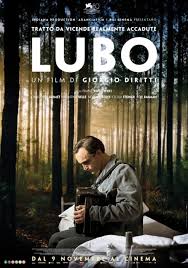
LUBO
Italy/Switzerland, 2023, 175 minutes, Colour.
Franz Ragowski, Valentina Belle, Joel Basman, Noemi Besedes, Cecilia Steiner, Philippe Graber, Filippo Giulini, Christophe Sermet
Directed by Giorgio Diritti.
This is an ambitious film, running to almost 3 hours. It is a film in three acts, so to speak, the first act in 1939, German-speaking Switzerland, the second act in Italian-speaking Switzerland and Ital wrecked at the mother at the mother y, 1951, and the final act taking place in the same areas in the early 1960s.
The film opens arrestingly with a comic performance by a travelling Gypsy (Yenisch) family in the town square and a happily entertained village audience. The main actor, along with his wife and three children, is Lubo Moser, played by popular German actor, Franz Ragowski. But, it is 1939, the Swiss wondering about Hitler’s ambitions, their neutrality, their safety, calling up all men as reserves, suddenly taking Lubo, and, according to Swiss legislation, taking his children into a state system, education, adoption, for many decades, a Gypsy Stolen Generation.
With the themes of 1939, the role of Switzerland, the Nazis, military, stolen generation, a great number of themes have been introduced to the narrative. And, there are many more themes, including murder, theft, trade exploitation, impersonation, seduction, and Lubo’s continued search for his children. And, there are even more themes in the final part of the film, especially in terms of family relationships, crime and justice, reconciliation.
Which means then there is a great deal to entertain as well as to challenge. With the sprawling nature of the story, it sometimes moves too quickly from one theme to another, at other times delaying, not always satisfying in execution even though the themes continue to be of great interest.
There is always the challenge of the character of Lubo himself, his entanglement with an Austrian Jew, his finding a new life Italian Switzerland, establishing himself, the different means to search for his children. And, it would seem that he finds some peace with a young woman who has a son, who works as a hotel maid. Given the complexities of Lubo’s life, his background as a Gypsy, his trying to re-create himself, and moral judgements about his behaviour, there is always the challenge of audience sympathy with him or not.
But difficulties are always round the corner and this idyllic experience with the young woman and her pregnancy cannot last.
The film ends with information about the exposure of the system for taking the Gypsy children, some with dreadful adoption situations, cruelty, deaths, immigration, and finally, legislation repealing the system. From Wikipedia: Das Hilfswerk für die Kinder der Landstrasse (literally: "the aid organization for the children of the country road"), more commonly known as Kinder der Landstrasse, was a project implemented by the Swiss foundation Pro Juventute from 1926 to 1973. The project aimed to assimilate the itinerant Yenish people in Switzerland by forcibly removing their children from their parents and placing them in orphanages or foster homes. Approximately 590 children were affected by this program.
- The title and tone? Lubo is a character, the stages of his life, tragedies, search for children, justice?
- A film in three acts, 1939, Switzerland, fears of war? 1951, is impersonation, search for his children, relationship? 1961, emerging from prison?
- A film with many themes, Gypsies (Yenisch), stolen generation of children, education and adoption, persecution of the Jews, murder, theft, impersonation, trading, seduction, manipulation, responsibility and justice?
- Lubo in 1939, to play in the village square, the captured bear, Lubo and his wife, the children, the applause, money collection, on their way? Held up by the military, the demands on Lubo, the taking of his children, hearing of the death of his wife in the struggle? Life in the military, in the snow on watch, the camp, the authorities, the approach by the Austrian, Lubo and his motivation, the jewels of the money, carrying the bag’s, the Austrian weary, Lubo killing him, taking the smuggled goods, his escape? Setting himself up, a new identity? Audience response to the fact that he has brutally killed the Austrian?
- 1951, Lubo and taking the name of the Austrian, wealthy, in society, the suspicious wife, her husband, the jewels, her infatuation, the affair? Lubo and his search for his children? The Pro Juventute organisation, their aims, purity of race, taking the Gypsy children, re-education, adoption, hardships and farms, stories of suicide, migration? The official, her charm, her attitudes, the infatuation with Lubo, the relationship? Lubo and his abandoning them? His falling in love with the maid, her work, her son, her being pregnant? His love for her being genuine? Life together? The police investigator, Lubo and his moving, hiding, his being arrested?
- 10 years later, the release from jail, his writing letters to the young woman, her son burning them? Her giving birth, Hugo? Lubo on leave, going to visit, discovering the young woman had died, the story of her son, his being helped by the charity organisation, working in the shop, the later revelations of sexual abuse, Lubo confronting the owner of the shop? The young man grown up, hostile to Lubo? Lubo seeing his fiancee, her more sympathetic approach? Is wanting to see Hugo, the older brother and his protection? Lubo and his going to see the police officer, giving his documentation about the disappeared children, the abuses? The police officer, going to the authorities, the hesitant reaction?
- The final information, the abuse of the stolen generation, the consequences? The repeal of the law?
- The film many themes, moving from one to the other, sometimes horrid, sometimes delayed? But the overall impact?
One for the Road/ Germany

ONE FOR THE ROAD
Germany, 2023, 115 minutes, Colour.
Frederik Lau, Nora Tschirner, Burak Yigit, Godehard Giese.
Directed by Markus Goller.
No mistaking the meaning of this title. Some years ago, there was the Danish film on a similar theme, Another Round. Drinking. Alcohol. Excess.
Audiences may not want to spend two hours with an alcoholic, especially if he is rather unsympathetic. However, over the decades, there have been a number of significant films about alcoholism, alerting audiences, sometimes holding up a cinematic mirror for those with alcohol problems. We can remember The Lost Weekend, I’ll Cry Tomorrow, Days of Wine and Roses…
We are immediately introduced to Mark, at a bar, hail fellow well met, known to the barman, raucous, singing, and deciding to drive home. The police, denials, beer cans in the car, Mark claiming just to be parking the car before he walks home! Not believed – losing his license for three months and having to join a therapy group, called roadworthiness but about the drivers rather than their cars. So, the question, will he manage, will he give up the drink, will he get his license back?
We go immediately into one of the therapy sessions, a very earnest facilitator who later admits to past alcohol problems, who challenges Mark whose only motivation for being there is to get his license back, but the facilitator, and a joke for the members and, perhaps, ourselves when we hear that his name is actually Dr Buhz! But the doctor keeps insisting that he is trying to elicit an interior motive, something that the driver will admit. We get glimpses of others in the session but the main character interacting with Mark is Helena, a primary school teacher, certainly with alcohol problems as we see.
Mark is in his midthirties, has a very strong reputation as projects manager on building sites, some scenes of him in action. He also has a close friend from school days, Nadim, who has settled down and tries to support Mark, but, very embarrassed, ignores him and then has to try to reconnect the bond. But Mark has made a bet with him that he will keep off the alcohol. And, the audience knows, no chance.
Mark does endure some days, 27, off the drink, even taking up swimming as a means of self-affirmation, succeeding in laps. But, there is torment, there is temptation, there is a longing.
And this is compounded by his growing association with Helena, their sharing stories, making no attempt to give up the drink. As they bond, and as Mark fails, their lives become even more raucous, Helena making a mess of her career at school, he growing neglectful on the building site, his bosses realising that they have covered for him for too long, demanding that he get himself in order.
While all this is something of an ordeal for Mark, perhaps it will be for some audiences as well, those who will find the film something of a mirror, others who have had to work with alcoholics, audiences who have to spend time with the film reflecting on the realities of the issues.
Frederick Lau gives a completely convincing performance as Mark, when sober, and, especially when drunk.
- The title and expectations? Jovial title?
- German perspective on alcoholism, therapy? Universal themes?
- Audience attitude towards drinking, alcoholism, consequences, psychological, social, need for therapy, possibilities for giving up alcohol?
- Mark and his story, seen at the bar, jovial, singing, drinking, in the car, the police, license and registration, the cans in the car, his excuses about parking, losing his license for three months?
- Having to go to therapy, the theme of roadworthiness for the drivers, the facilitator and the joke on his name, the members of the therapy group, market’s motivation, to get his license back? The encounter with Helena? The focus on the other member of the group, his explanations, the stages alcoholism and reasons, his identifying with them all?
- Mark and the sessions with the therapist, to find the inner reason for giving up alcohol, the facilitator and his own story, Marie films, Mark and his swimming, the rivalry in the pool with the older man, the boys asking him, his explanation of his moods?
- Mark and his long friendship with now Dean, from school days, now Dean and his settling down, wife, house, the party in the celebration? Nadeem and his concern about Mark, talking with him, the bet (and the irony of being naked with his comment running around Berlin and the reality at the end)? Nadeem ignoring him, going out to meet him, Mark upset and abrupt, Dean and his attempts at continued support and friendship?
- His story, respected project manager, seeing him at work, his friends, the issue of the narrow pipe, his drinking, late for an appointment, going out with Helena, on the roof, the flooding of the project, the confrontation by his boss, not able to overlook is drinking anymore, urging him for therapy and then reapplying?
- Helena, primary school teacher, her drinking, her excuses, her friends, pretending to be pregnant, the response of the school, then the gossip, her being exposed? Her continued drinking, not making resolutions, meeting up with Mark, drinking with him, talking with him, the time for sexual relationship past, her overall effect on Mark?
- 27 days, without drink, the effect, moods, craving, meeting a group of young men, the urging him to drink, his giving in, completely given over to their celebration, the consequences?
- The session for therapy, the facilitator and his explanations of the different kinds of alcoholics? His sessions with Mark?
- Mark, the final challenge, keeping to the program, the support of 19 – and the hopeful ending and iodine naked with his sign in the train?
- The effect of an audience spending almost 2 hours with an alcoholic, his not being entirely sympathetic, his frustrating behaviour, for himself, for the audience? Therapy? Hope?
- This kind of film holding of a mirror, especially for any alcoholics in the audience?
Not a Word
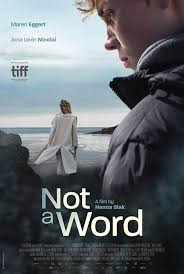
NOT A WORD
Germany/Slovenia, 2023, 87 minutes, Colour.
Maren Eggert, Jona Levin Nikolai.
Directed by Hanna Slak.
Keeping silent. Secrets. Reticence. Inability to communicate.
This is a comparatively brief film, essentially a film about a relationship between a mother and son. The son is very much a morose character, morose behaviour – leading to a cinema experience that is morose.
The writer director is of Slovenian background, working in Germany. Dedicating this film to her mother and, in interviews, indicating that she is drawing on her own relationship with her mother as well as with her children. This certainly comes across in the intensity of the scenes between mother and son.
The mother, Nina, is an accomplished orchestra conductor, working throughout the film on Mahler’s 5th Symphony, with some scenes in rehearsal. She is separated from her husband who does come to spend time with his son. The son, Lars, teenager, has had a difficult experience at school, a girl disappearing, and then the finding of her body. At school, he is sullen with students and teachers, is alone on an upper floor, opens a window, the audience speculating on his motivations, perhaps depression, then the news that he has fallen from the window. But, he has escaped with concussion. His mother has to rush from rehearsals to the hospital.
The scenes between mother and son are particularly awkward, perhaps younger audiences identifying with Lars, empathetic with his attitudes, while older audiences especially parents, will be identifying with Nina, her attempts to communicate, her experiencing the rebuffs by her son, moody behaviour, trying to jump from a car, discomfort at home.
Then the film moves to the Atlantic coast, in France, a place where the family used to go in the past and Lars was happy, even wanting to go there this time instead of a lake proposed by his mother. The scenery is rather wild, overcast, there are storms, their old boat needing repairs, walks together, separately, little communication.
There is a young girl, daughter of the owner of the local store, friendly with Lars, but seeing struggling, the mothers upset.
The writer-director, as will is the audience, would like some kind of breakthrough for mother and son – and, as we persevere with the difficulties, we discover some kinds of possibilities, whether the mother and son are fated to have a morose relationship all through life.
- The title, silence, secrets, self-preservation, passive-aggressive silence?
- The setting, home, mother and son, absent father and his visits, the world of the orchestra, Mahler and his fifth Symphony, rehearsals? The school, little? The visit of the Atlantic coast, the countryside and walks, the boat? Atmosphere?
- The musical score, the Mahler rehearsal, the themes throughout the film, reflections of characters and situations?
- Nina and Lars, separation from her husband, caring for her son, his age, quiet, relationship with his father? The newspapers, the story of the missing girl, her body being found, Lars and his relationship with the girl? The effect of her death, at school, with the other children, going to the empty room, the window, falling out, deliberate or not, concussion, hospital, recovery?
- Nina, her colleagues with the orchestra, the plans and hopes, the sponsors, young conductor and her hopes, the agent, the rehearsals and the music? The interruption, her hurrying to the hospital?
- Lines, wanting to be with his father, his mother suggesting time away, his rejecting the suggestion of the Lake, is wanting to go to the Atlantic, memories of the past? The going together, accommodation, the landlady and the shop, her daughter, Lars and the interactions with the daughter, the struggle, both mothers apprehensive? Yet the little girl later helping Lars?
- Tension between mother and son, going for walks, separations, finding of the boat, need of repair, the verbal clashes, silences, the plan to go back, Nina and her phone calls and responsibility for her work, the oncoming storm, preventing the ferry to come? The dilapidated boat, the decision to restore it, Lars and his work, his having some kind effect on him?
- The return, the possibility for some kind of hope for the future?
Into the Australian MSC Archives
Into the Australian MSC Archives
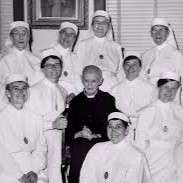
One of the most interesting characters in the Australian province was Fr. Ted McGrath, often called by his name, Timothy McGrath MSC. In John Bovenmars’ Jules Chevalier, Daily Readings, the heading for May 17th is, “1977, “Death of Father Timothy McGrath MSC (AUS), co-founder of a Religious Congregation, Our Lady’s Nurses for the Poor.

There is more than a straightforward story behind that heading, “ a Religious Congrergation”. While Father McGrath helped Eileen O’Connor, Servant of God, in the establishing of Our Lady’s Nurses in 1913, his help was viewed with suspicion by some authorities. He left Australia as a war chaplain, serving with honours in World War I – then not returning to Australia until 1941. He was a man who was able to overcome long-term criticism.
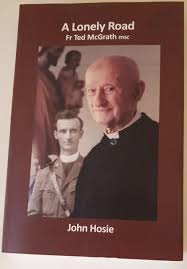
His story has been told by John Hosie, A Lonely Road, a significant story, his contribution in helping Eileen O’Connor in her mission.
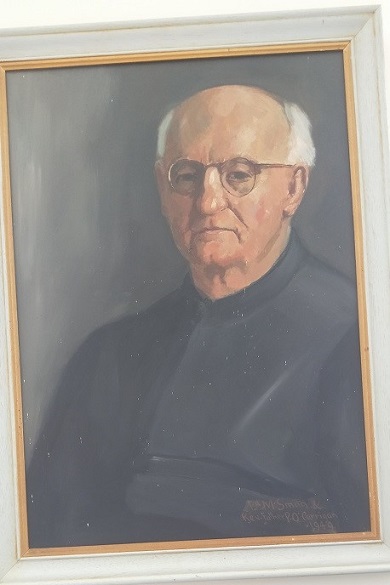
On the 21st, 1899, John Bovenmars’ entry is: “First vows of Brother Robert South, first Lay-Brother of the Australian province”.
It was Brother Robert who, on December 7 1904, formally “took possession of the keys” from the acting caretaker of the estate, Nepean Towers, purchased by the province to become St Mary’s Towers. He was certainly a pioneer in the province, the first of a significant number of brothers and their ministry. He died in 1956. His portrait was painted by noted artist, Edmund Smith , who had also painted Father Chevalier. Robert South’s portrait hangs in the community room at St Mary’s Towers Douglas Park.
May 15th, still the Jules Chevalier Bicentenary Year: His gift of Our Lady of the Sacred Heart
May 15th, still the Jules Chevalier Bicentenary Year: His gift of Our Lady of the Sacred Heart
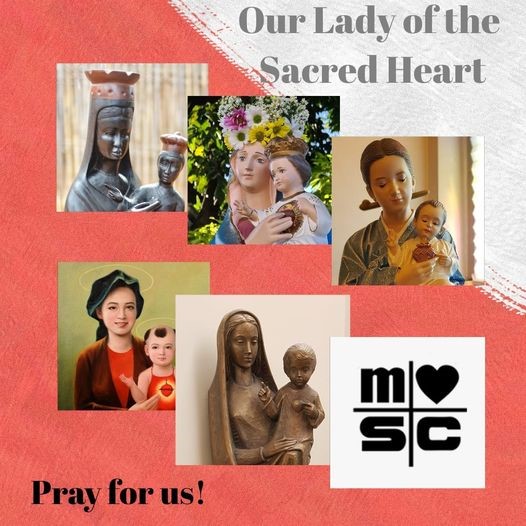
And we remember that this is the 150th Anniversary of the Daughters of Our Lady of the Sacred Heart.
And the gift has reached to countries far and wide:
To Asia
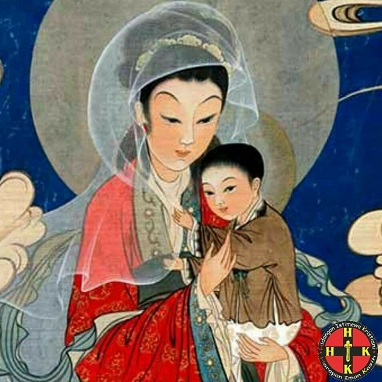
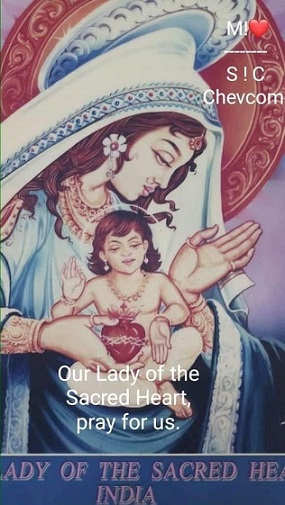
To Latin America
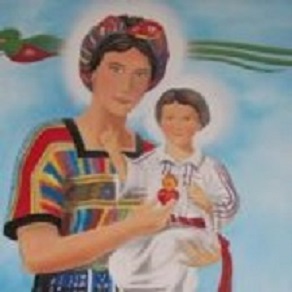
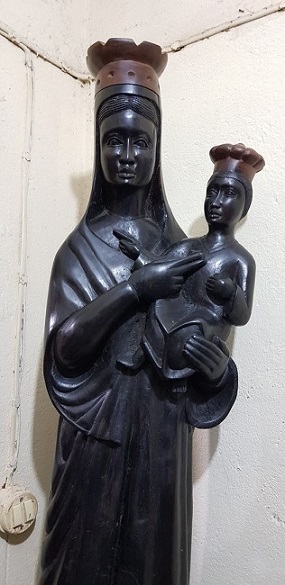
MSC Australia books, books about MSC Australia
MSC Australia books, books about MSC Australia
Peter Malone writes: this website post has been with with my “working with Michael Fallon on our MSC Books Archive” hat on.
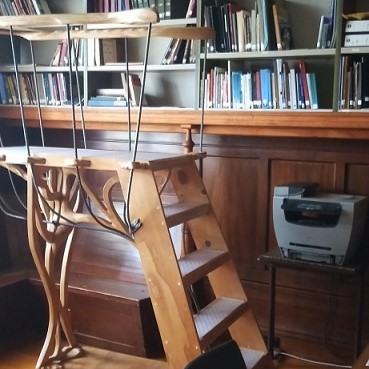
Have you wondered about how many Australian MSC have written books?
The quick answer is: more than a lot!
The news for this website post is that there is now An Annotated Bibliography of the Province. It will be an ebook on the Province website. This has taken some years to complete, interrupted for several years by Covid, and a realisation that many books were in the library at Kensington, quite a number upstairs on the second floor in the archives room, and so many all around the province.
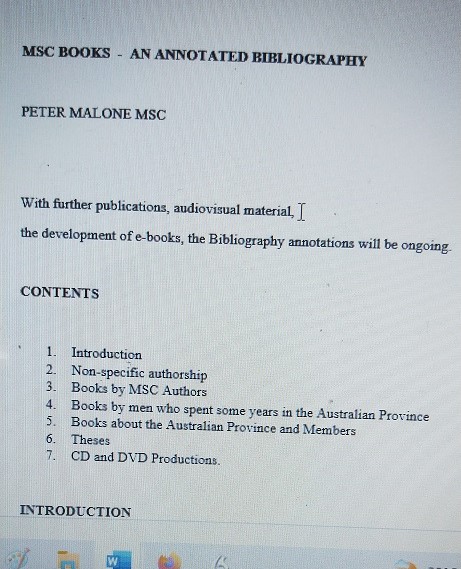
After Paul Stenhouse’s death, Michael Fallon had the hefty task of organising that room, Paul’s books, coordinating the MSC books from the various sources, cataloguing them, arranging particular sections of Paul’s room so that it could become the book archive.
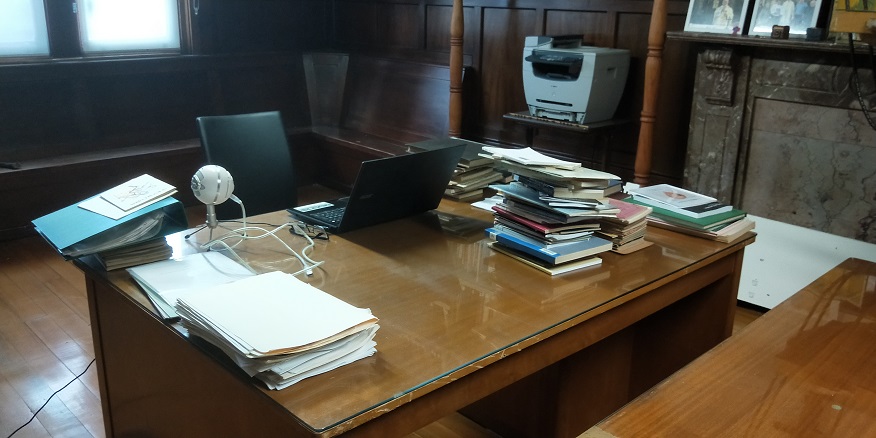
The Annotated Bibliography has, in alphabetical order, each Australian MSC author, the publishing details of each of their books, sometimes a short annotation, at other times longer, especially utilising the information on back covers. The books we have now are in alphabetical order occupying the wall space of half of the archive room. And, within this alphabetical order, the books written by former confreres, and these are also annotated.
In a corner across the room, is an increasing number of books about members of the congregation, different ministries, aspects of MSC life.
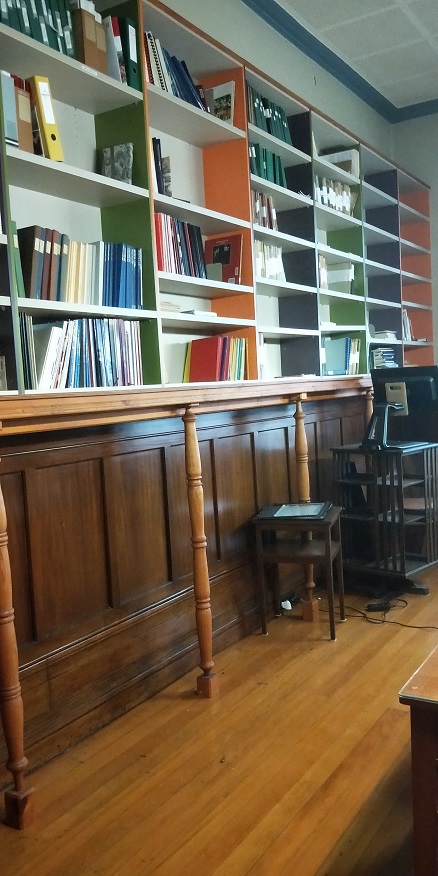
A request. We are eager to have copies of any books about MSC in Australia, individuals, ministry (an example is a thesis from Charles Sturt University, 2008, on MSC NT missions, with very full chapters on John Leary, Ted Merritt, Gerry Burke, more information than we have previously come across before.)
The Annotated Bibliography will find its home on the provincial website, in the section on e-books.
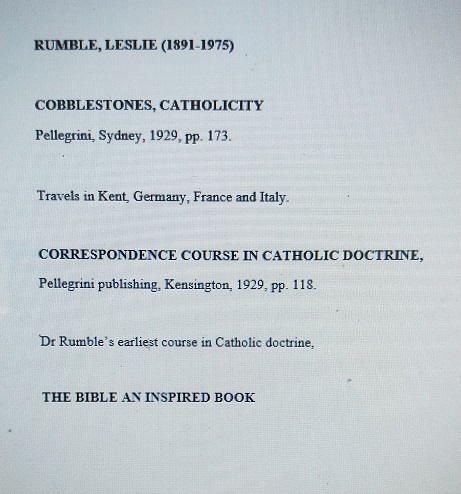
The person who compiled the Annotated Bibliography is website editor, Peter Malone MSC – persuaded to put in this photo of him as he stood on the library carriage which moves, rather heavily in the pushing, across the room, precarious to descend (rather easier to go up) and requires constant attention to balance! It is hoped that the bibliography maintains that good balance.
